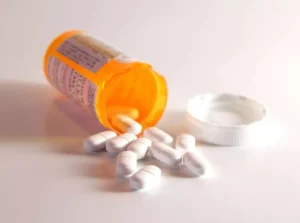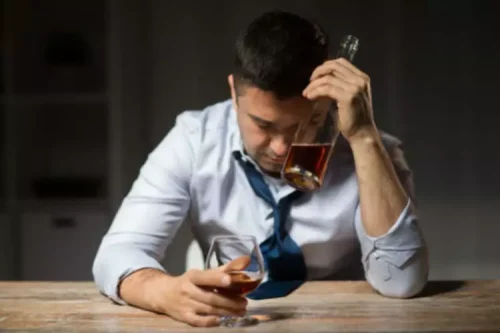
These guidelines apply to patients from any walk of life, including those with chronic pain, PTSD, addiction, non-medical use of opioids, etc. In states where MC is legal, future research should assess the effects of long-term MC use on opioid addiction and opioid-related deaths. Additionally, there is a need to assess the optimal/standardized MC dosage to achieve a reduction in opioid dosage and what routes of MC administration would most reduce opioid dosage the fastest. Researchers must also assess the long-term health and wellness consequences of reduced gastrointestinal motility reported to be beneficial to reduce opioid dependence and opioid-related mortality. The availability of, and access to, MC in states with MC laws implies that patients with non-cancer chronic pain who do not obtain relief with common medications might consider an MC prescription.
© 2024 Harvard Health Publishing® of The President and Fellows of Harvard College
- After screening eligible studies, we found nine studies that reported using MC to reduce opioid dosage for the treatment of non-cancer chronic pain.
- The transition from opioids to cannabis can be done via a slow, comfortable taper down off of the opioids, overlapping with a gentle taper up on the dose of the cannabis.
- (January 31, 2023) – The New York State Department of Health today announced that its latest multi-agency study detailing the association of receiving medical cannabis for 30 days or longer with a reduction in prescription opioid dosages has been published in the Journal of the American Medical Association (JAMA) Network Open.
- In both of their studies, CBD (400 mg or 800 mg) or placebo were given for 3 consecutive days to individuals abstinent from all opioids, and not receiving any MOUD.
- When shown images that acted as reminders or cues of their addiction, those receiving CBD experienced significantly less craving compared to those taking placebo.
†A multilevel logistic regression model with state of residence as random effects and year as fixed effect was used. In 2020, of Americans aged 12 and up, roughly 14.2 million people (5.1%) had a cannabis use disorder.

The medical uses of cannabis
Despite these apparent benefits, there are drawbacks as buprenorphine has minimal oral absorption and must be absorbed sublingually for an effect (10% compared with 30–55% bioavailability). These sublingual formulations may take up to 10 min to dissolve completely, resulting in an impractical system of directly supervised dosing at the local pharmacy, opening the door to drug diversion if improperly done [17]. Nonetheless, these drawbacks have inspired innovative solutions to potential diversions; for example, the oral films adhere to the oral mucosa quite rapidly making them difficult to remove and therefore be diverted.
- Nonetheless, the therapeutic aim is to target all three stages of the proposed model put forth by Koob and Volkow [18].
- Cannabis and opioids work via overlapping receptors and can work synergistically to control pain.
- Non-cancer chronic pain differs from cancer pain because cancer pain arises from the invasion of a tumor and the interaction among tumor cells, the nervous system, and an individual’s immune system [2, 3].
- For instance, one study published by the American Academy of Pediatrics documents findings from one analysis that adolescents who use cannabis are 104 times more likely to use cocaine than adolescents who never use cannabis.7 There are significant differences between these two populations of adolescents predating the onset of cannabis use.
- The addictive properties of marijuana have become a subject of controversy, but there is evidence showing that about 30 percent of marijuana abusers will become addicted to the drug.
- In the same population, there was also reduction in mean emergency department visits and hospital admissions from chronic pain in the preceding calendar year [18].
Access to medical marijuana reduces opioid prescriptions
Similarly, a sample of 244 MC patients with non-cancer chronic pain attending a Michigan MC dispensary reported a 64% reduction in opioid use after starting MC [21], and 18.4% of 2032 Canadian MC patients reported up to a 75% reduction in opioid dosage [23]. In a case series of three patients with non-cancer chronic pain of 6–10 years duration, the use of MC led to 60–100% reduction in the opioid dosage compared to when MC was not used [26]. Among 1514 respondents who used MC for non-cancer chronic pain in Australia, there was an average of 70% pain relief, where 100% meant complete pain relief [22]. Nevertheless, studying the potential therapeutic applications of carefully chosen components of cannabis or cannabinoids to treat specific aspects of OUD are not without scientific merit. While only a few controlled studies utilizing pharmaceutical cannabinoids in humans with OUD have been conducted, results of these trials have been informative.
As of today, the issue of whether or not marijuana can be used as a treatment in drug addiction recovery remains unsettled. Most traditional addiction treatment programs, including The Recovery Village, work on an abstinence-based model. Since marijuana can be addictive, it might seem counterproductive to use it in addiction recovery.
Cannabis Use and Risk of Prescription Opioid Use Disorder in the United States
However, these initiatives are based on weak evidence which at present do not support the listing of cannabis or cannabinoids as a treatment for OUD. Nevertheless, studying the potential therapeutic applications of carefully chosen components of cannabis how to overcome alcoholism or cannabinoids to treat specific aspects of OUD is not without scientific merit. Given the high rates of treatment discontinuation among those taking medications for OUD, interventions that further improve clinical outcomes are especially needed.

Shortcomings of Cannabis in Medication-Assisted Therapy

Cannabinoids for the treatment of opioid use disorder: Where is the evidence?
Quality assessment of included studies

